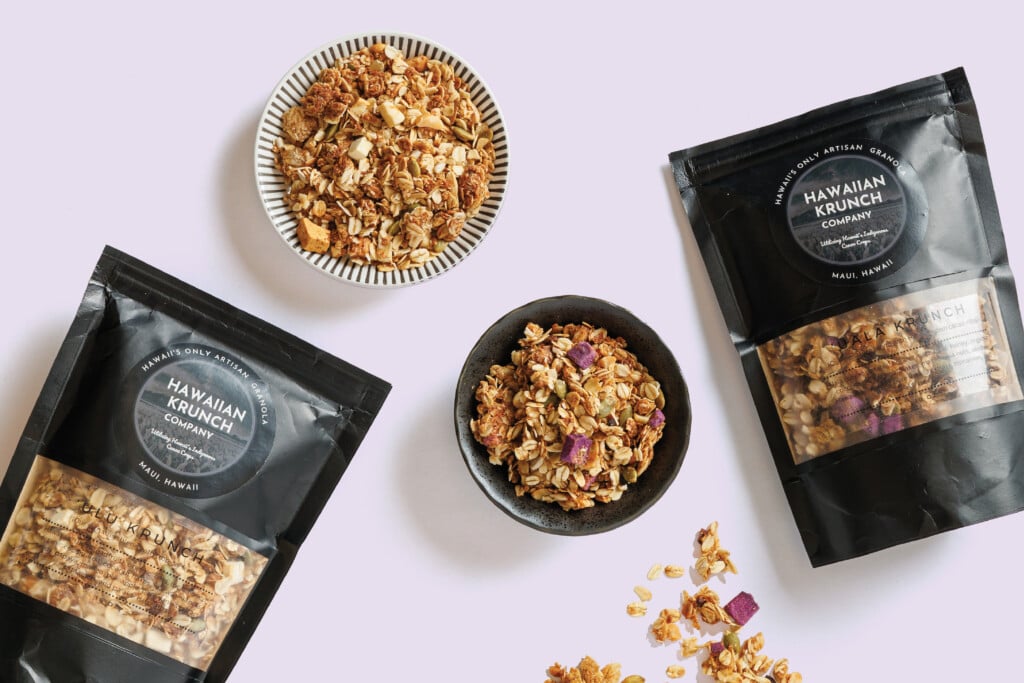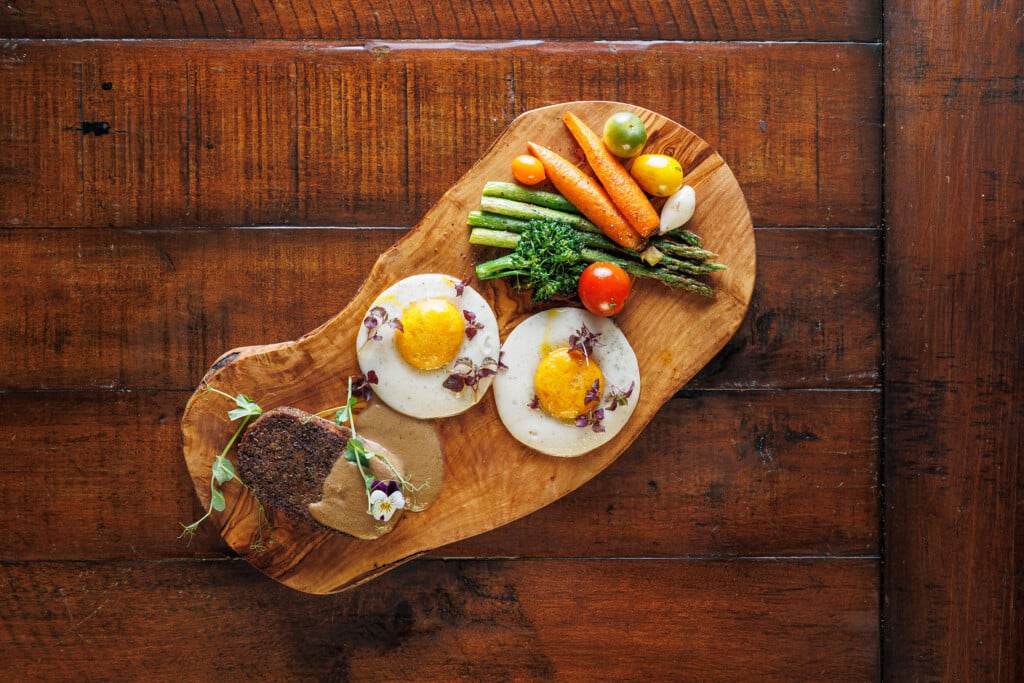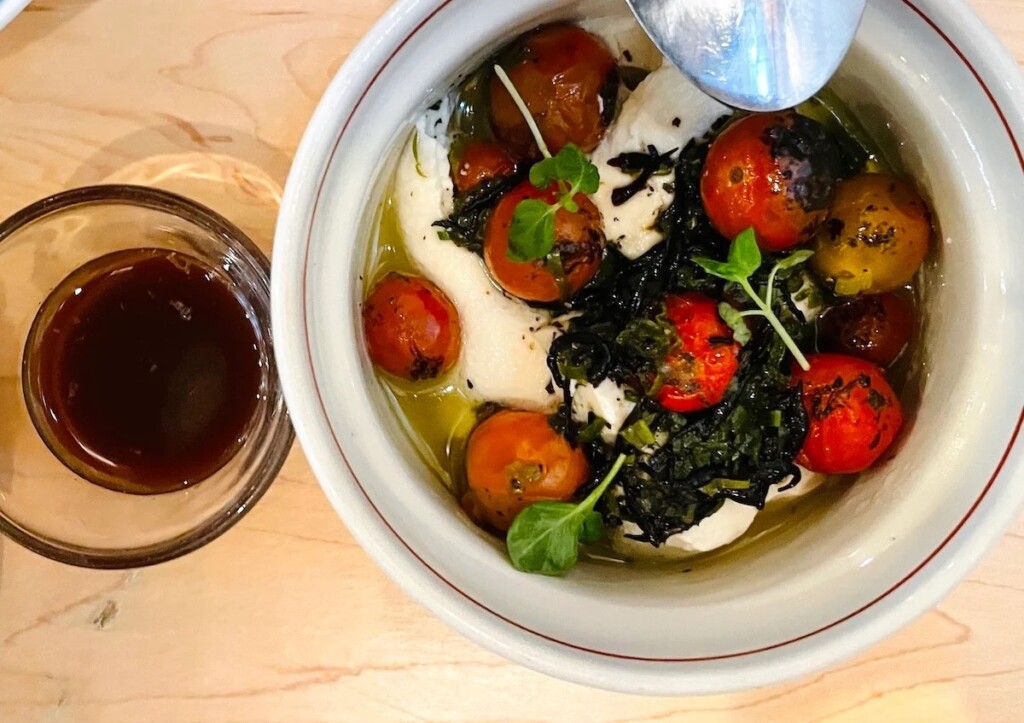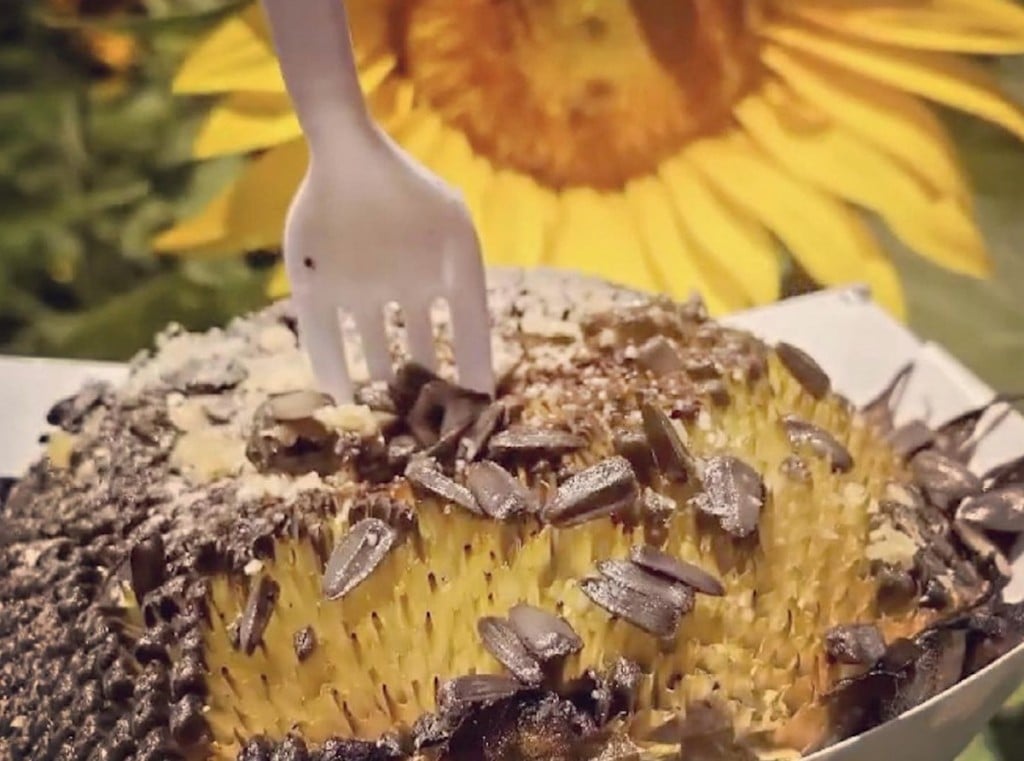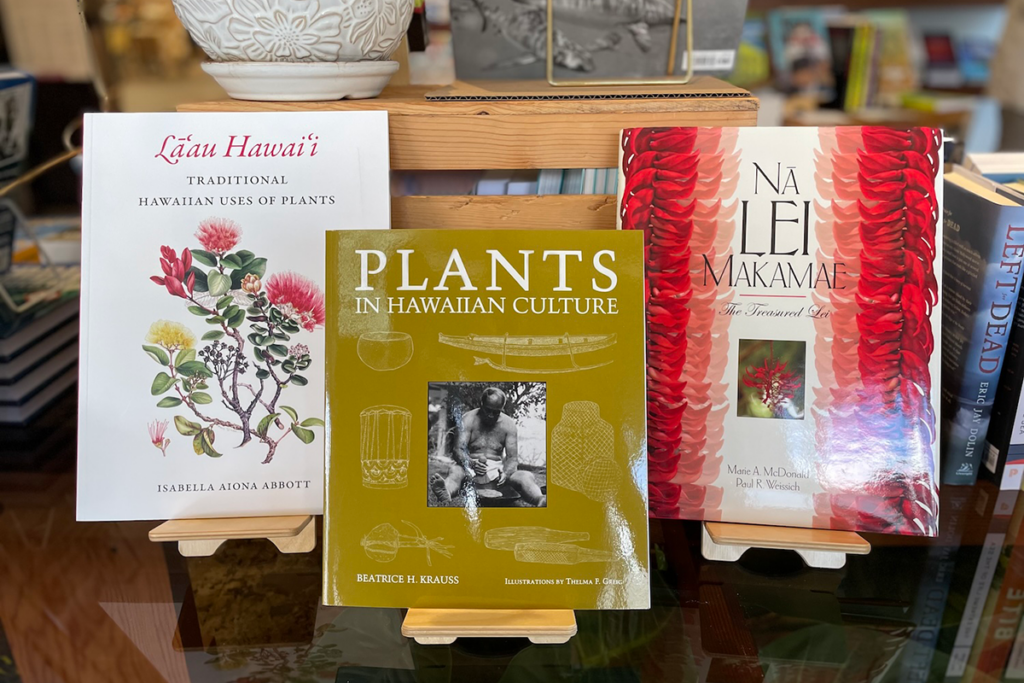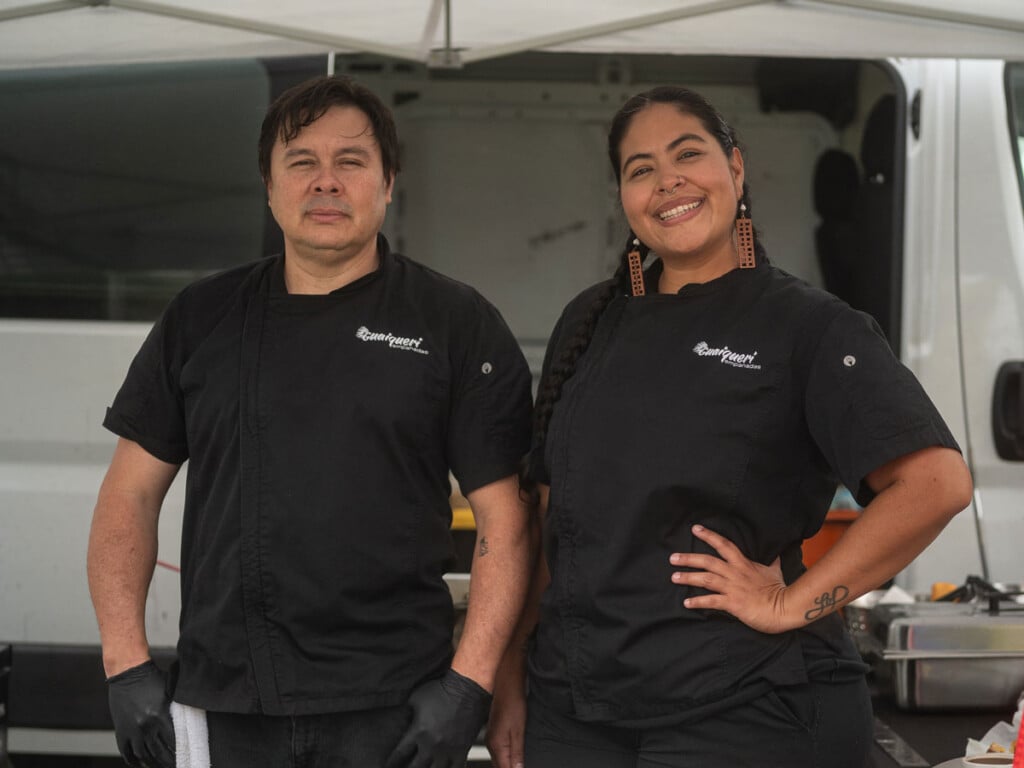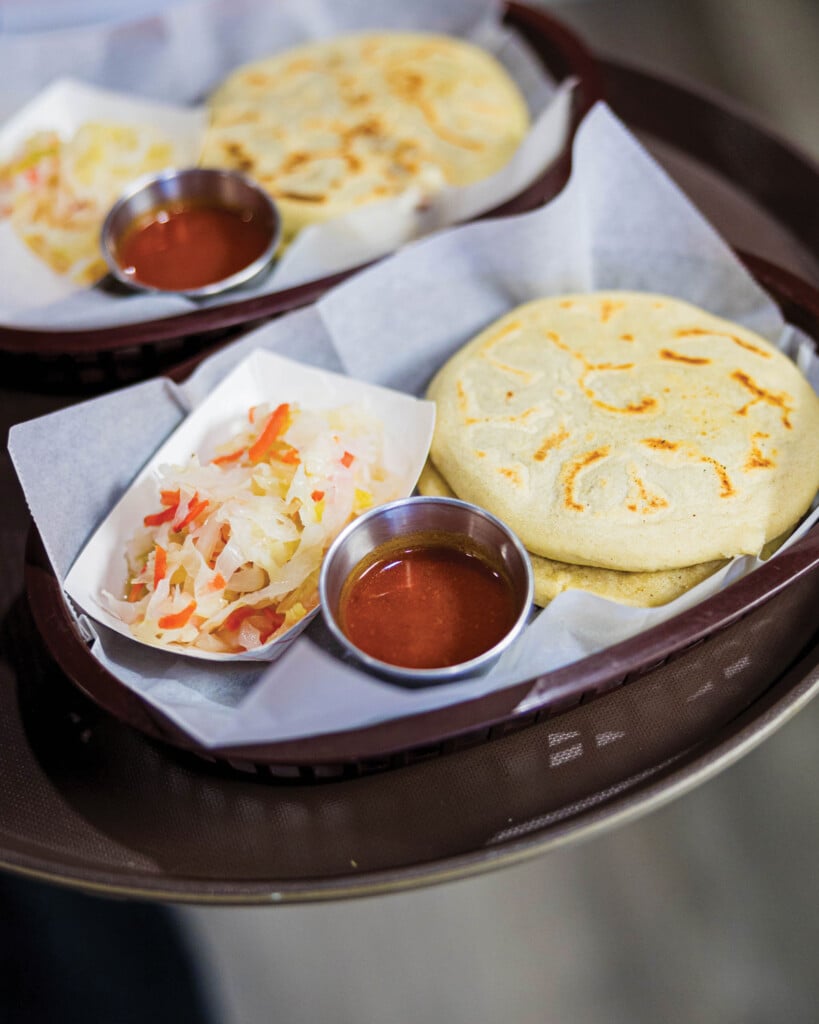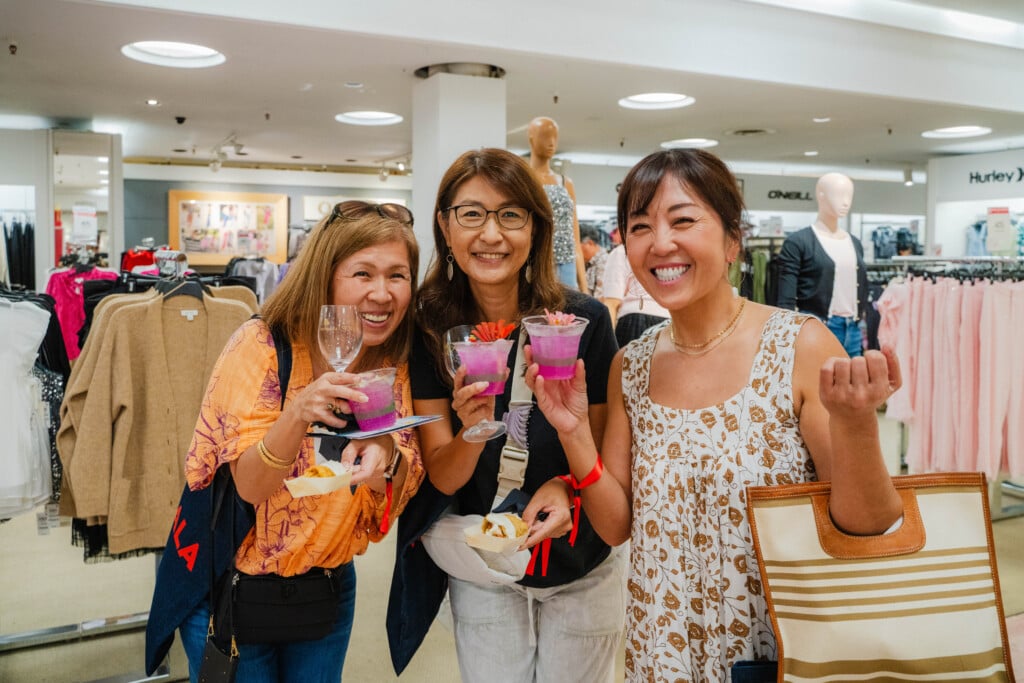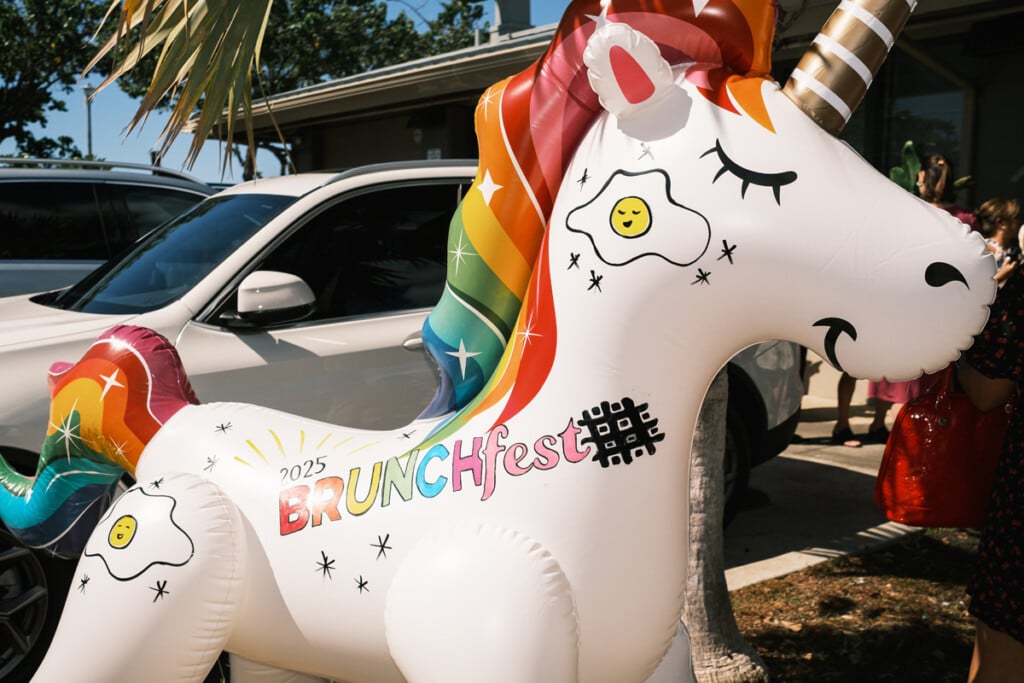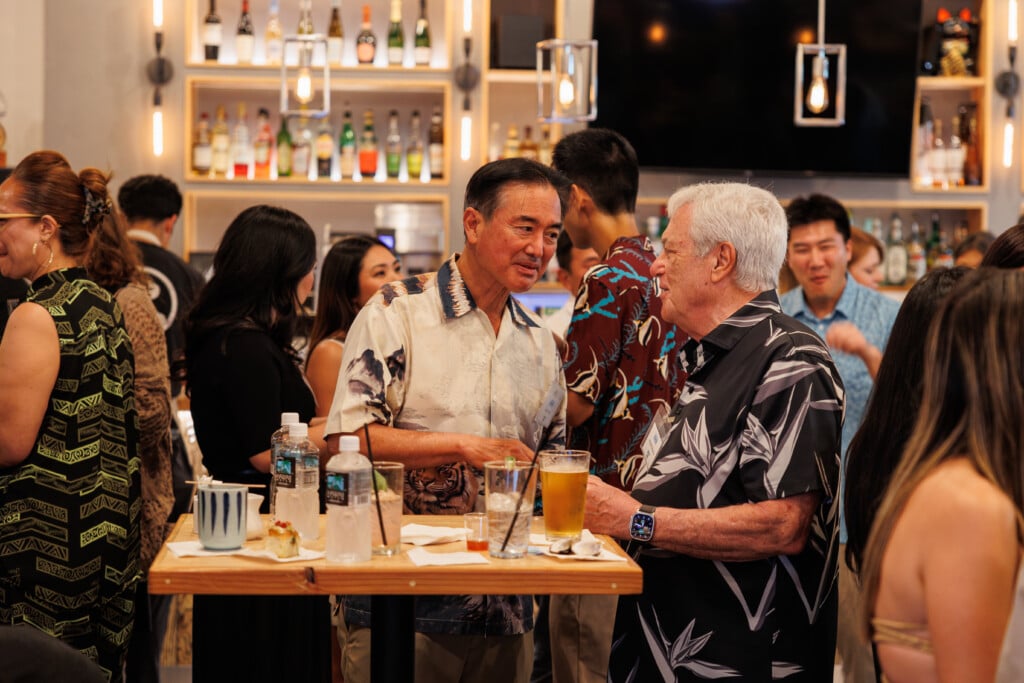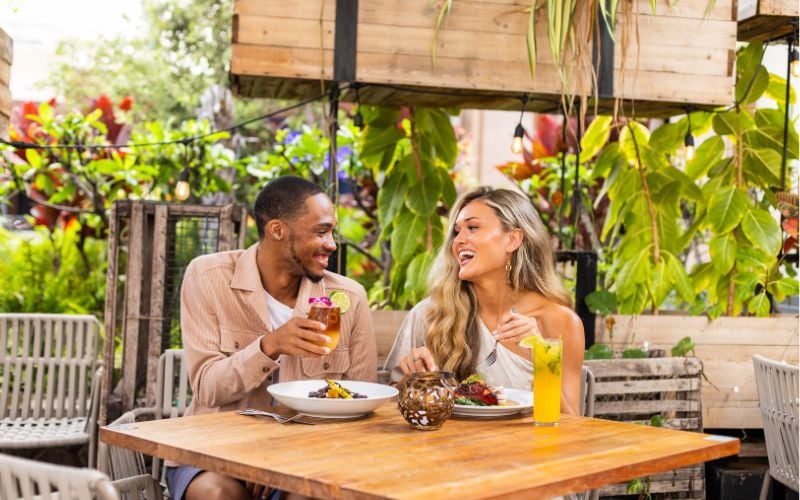In Kaka‘ako, Plant-Based Goes Vogue at 3 Restaurants
Even omnivores are opting for new meatless offerings at three spots in Kaka‘ako.
Where Plant-Based Goes Vogue | Where Vegetables Go Indulgent
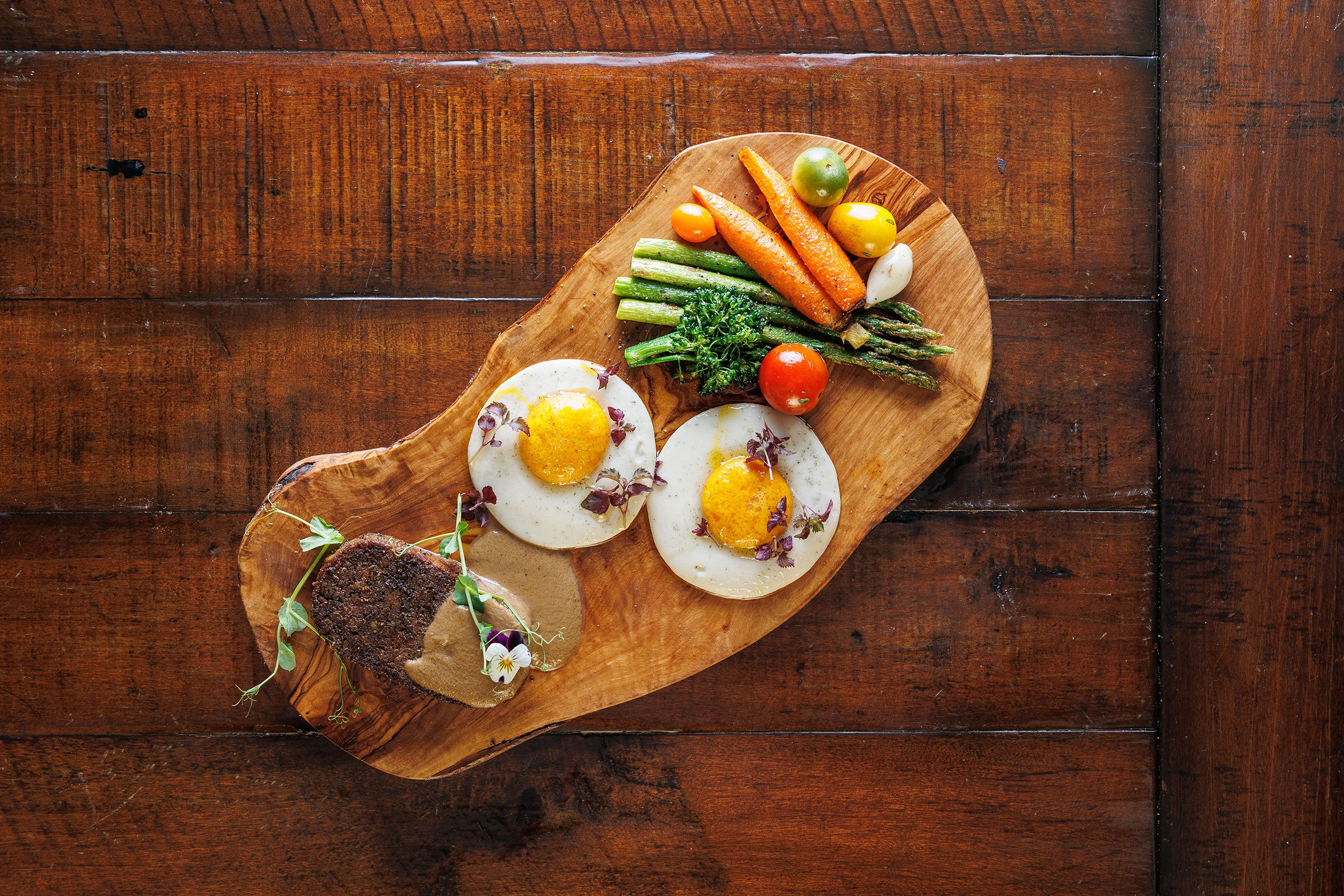
In the land of katsu and loco moco, I discover what a hard sell meatless food can be when I offer to treat a friend to a plant-based lunch. “Thanks, but I think I’ll pass,” she texts. “I’d rather pay for red meat.” She’s not alone: While much of the country feasts on an explosion of plant-based options from comfort food to fine dining, the growth of Honolulu’s scene has been as laidback as the vibe at a vegan café.
How laidback? Peace Café opened in 2010 and Juicy Brew 10 years ago, both now staples in a shifting scene of Asian vegan restaurants and casual eateries offering crunchy kale bowls, avocado toast, meatless Korean chicken and yes, loco mocos. A modest upscaling began with the arrivals of Tane Vegan Izakaya in Mō‘ili‘ili in 2019 and plant-based prix fixe at AV Restaurant in Kaimukī (closed since a fire in January) and Nature Waikīkī two years later. And that’s about it. So while plant eaters have more options these days, omnivores may not have noticed.
“It is tricky to create a menu that will make everybody happy. But it is the creative process that is the most beautiful part of cooking.”
—Ahu Hettema, chef and co-owner, Istanbul Hawai‘i
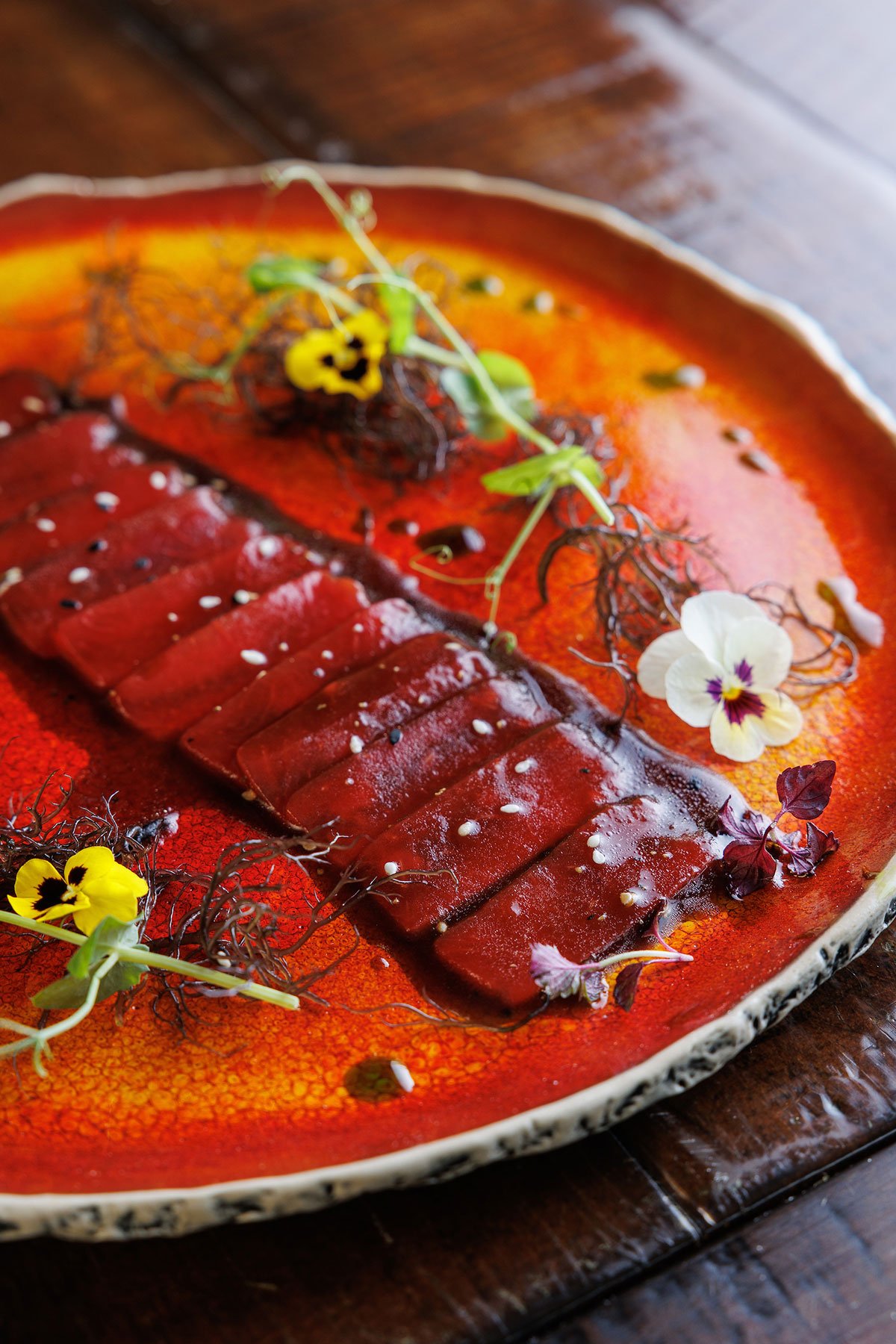
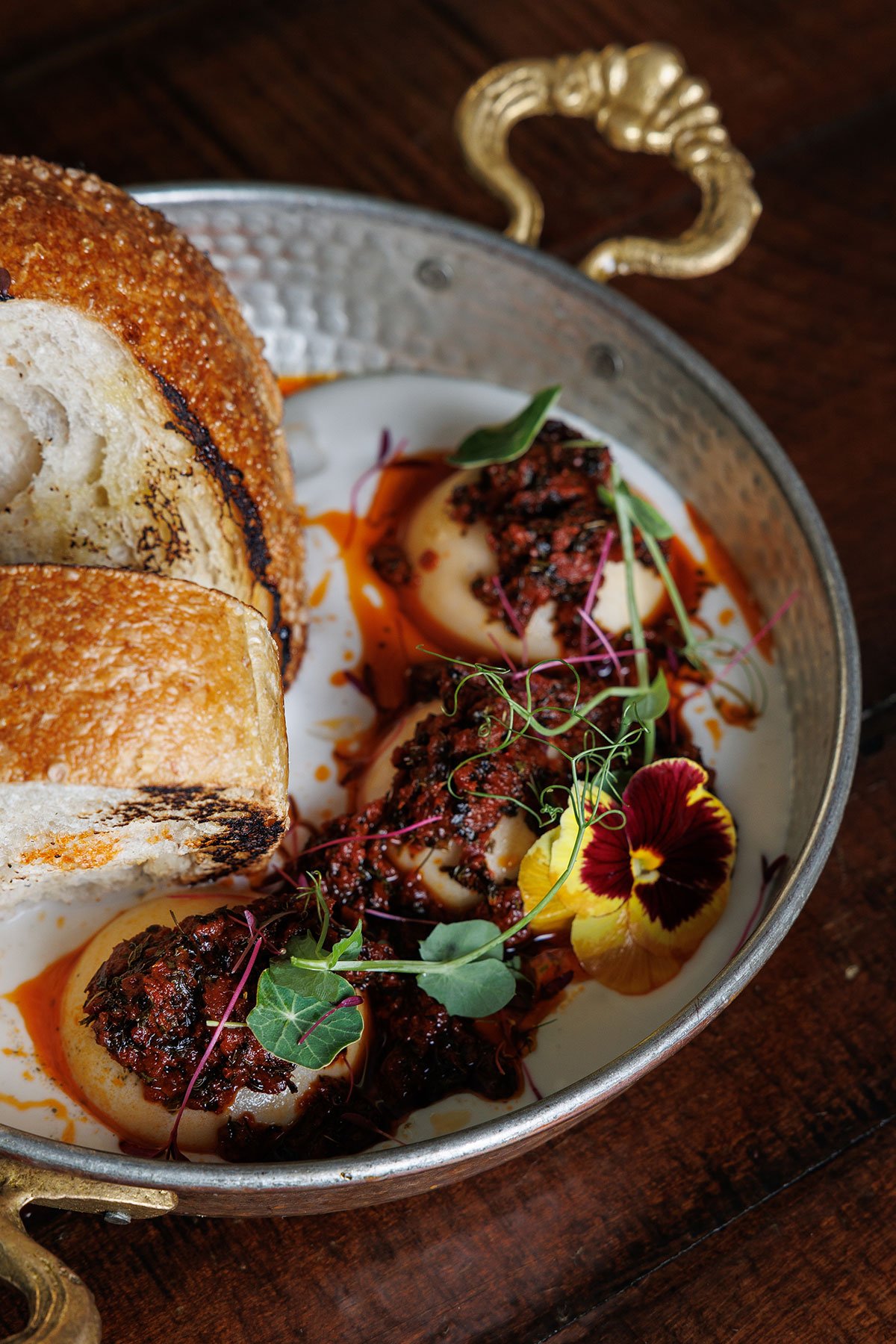
Istanbul
* * *
Across from Whole Foods Market, dressed in cerulean blues and old-world tapestries, Istanbul thrums. It’s the city’s only Turkish restaurant, and it’s perpetually busy. Meatless dishes like imam bayildi, or tomato-stuffed eggplants, were already available before June, when chef and co-owner Ahu Hettema ramped up the options in a new Botanical Compositions section of the menu—because the volume of customer requests for animal-free substitutes was slowing operations, she says. Now plant-forward dishes drive 40% of Istanbul’s sales, half from the top-selling mezze platter.
“In my restaurant, I feel like plant-based dishes are ordered by younger people or older people,” Hettema says. Among these groups, “there’s two types. One type is people who quit eating meat because they have extraordinary love for animals, or they have health issues and they miss the meat texture, the meat look. Those guests adore our plant-based steak and eggs and our manti. They are so thankful.”
The other type? “They don’t want anything that looks like meat. They want things to look like plants. We created dishes that look like meat, taste like meat, smell like meat, and we also have dishes that are completely made out of plants, like our imam bayildi,” she says. “It is tricky to create a menu that will make everybody happy. But it is the creative process that is the most beautiful part of cooking. Especially with my ADHD, I get bored if things are not challenging.”
On Istanbul’s regular menu, manti dumplings are made with A5 Miyazaki wagyu. The plant-based version uses Impossible Beef, which “doesn’t taste good,” Hettema says. So she and her mother, Nili Yildirim, tested the soy protein mixture with different spices before settling on a blend with allspice, cardamom, and toasted, ground karanfil cloves. Hettema claims even carnivores sometimes order it as a lighter alternative to rich wagyu.
Not every substitution is as involved—like cashew cheese instead of ricotta on the manakeesh flatbreads, for instance. In the Delectable Çılbır, which the menu says was “eaten by Ottoman sultans since the 15th century,” OK Poultry eggs are replaced by soy-protein versions. When I slip my fork in, they release golden yolks onto a garlicky sea of cashew yogurt. Which is pretty mind-bending, actually. What would the sultans think?
“I believe people can put energy into food, and energy level is important to health too.”
—Meiko Fuchie, co-owner, Alo Café
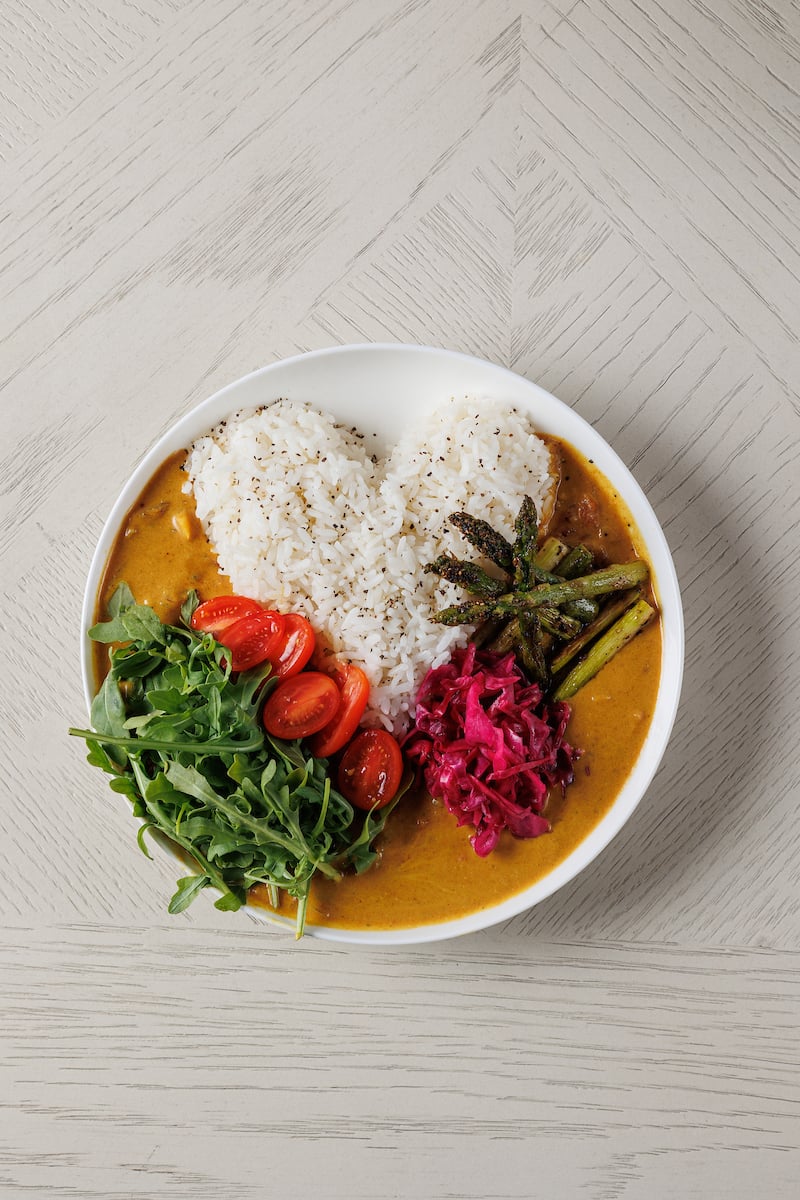
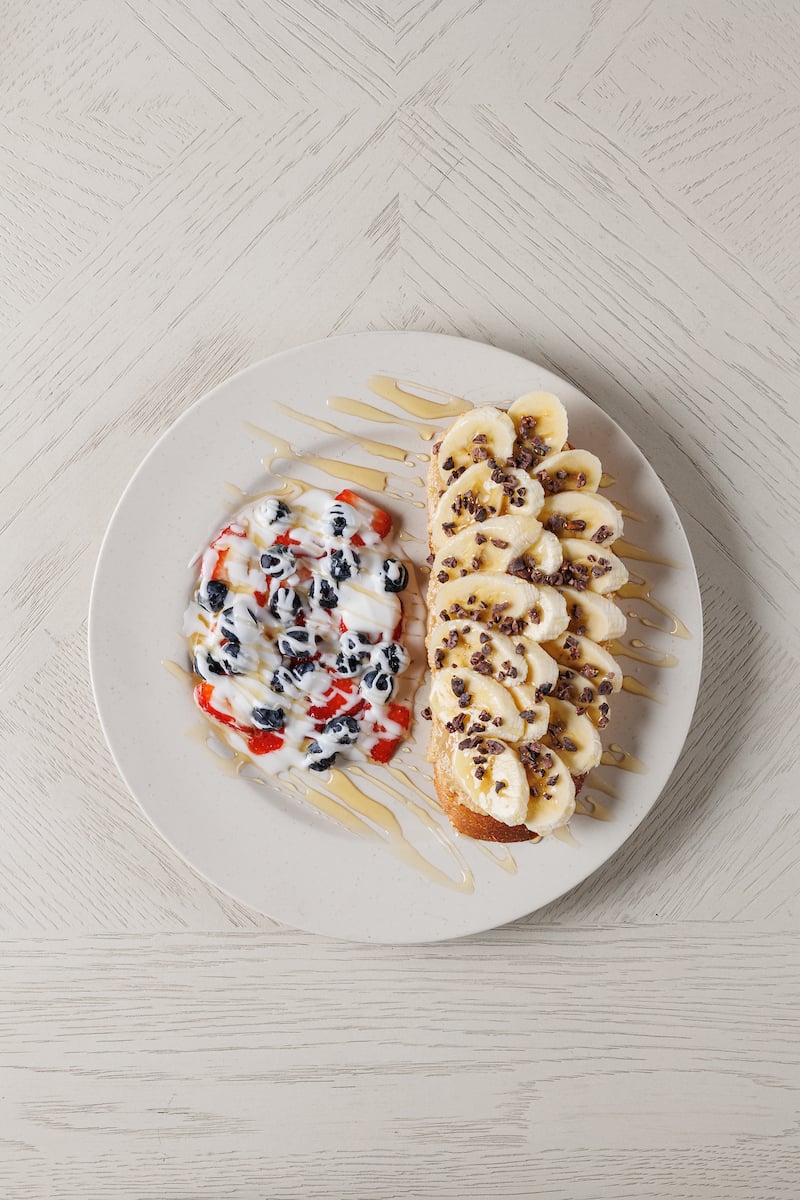
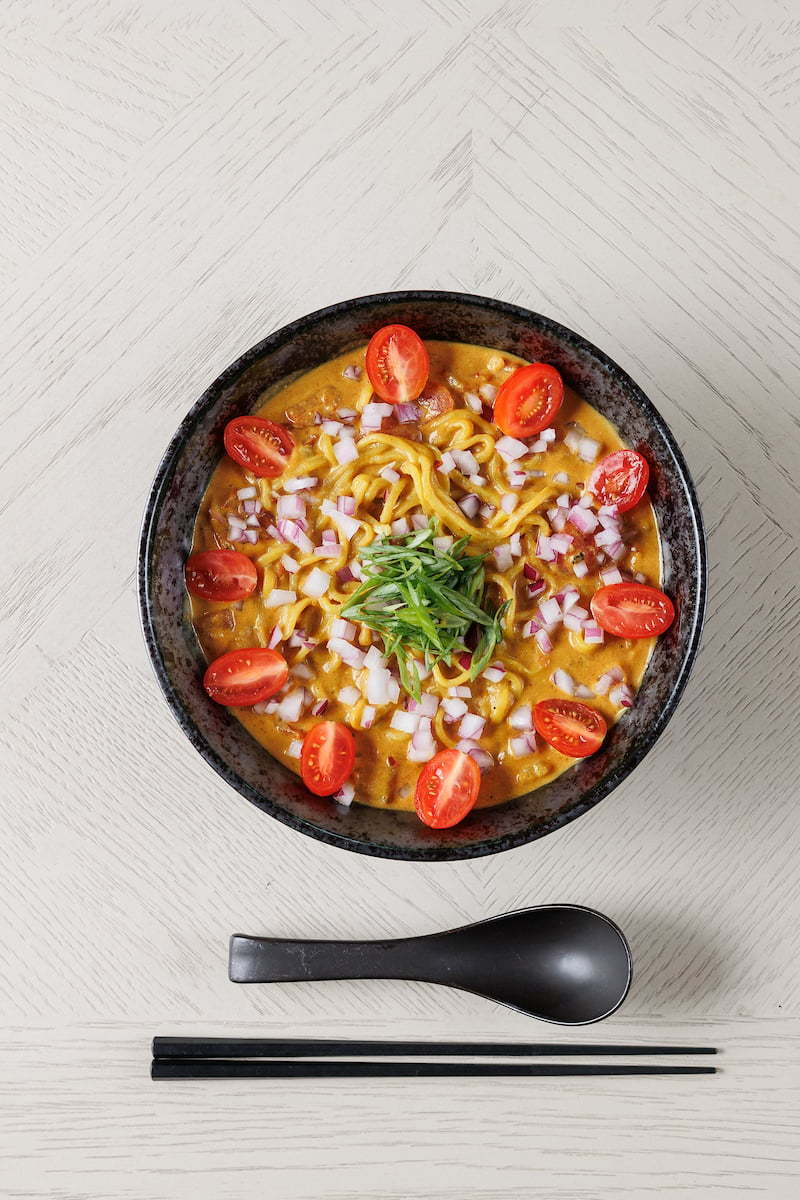
Alo Café
* * *
In the Salt complex on the other side of Ward Avenue, Alo Café exudes a beachy calm. A surfboard hangs on a wall, lau hala sun hats are for sale, and sofas invite lounging. The décor isn’t a trope, it’s a whole-life statement: Alo’s owners, Meiko and Ryoichi Fuchie, are surfers and vegans who came to Hawai‘i from Japan to balance their lives and reduce their carbon footprint.
At Alo, the food looks like plants. Açaí bowls, nutty banana toast, spinach wraps with hummus and avocado, tantan ramen—all are made with no animal products, MSG, refined sugars or artificial additives.
“I don’t want to lie to customers or to our heart or soul or to our children,” says Meiko Fuchie, who keeps snapshots of her son and daughter near the sun hats. “We want to show them that we are enjoying our lives doing what we want, and we believe in what we do.”
Alo is actually a micro chain. The Fuchies opened smaller versions in Waikīkī in 2021 and Downtown last fall. The Kaka‘ako café, the only one with a full kitchen, joined Salt’s 18 other eateries, including Arvo Café and Lanikai Juice, in June. In late summer, the couple added dinner hours and wondered if bolstering the menu with meat, fish and egg dishes might draw more customers. “I hope adding meat options will bring people who were not even interested in vegan food,” Meiko Fuchie says. “We want them to come and experience [vegan food] once, and think, oh it’s so good, it doesn’t taste vegan.”
That target audience includes me. Given the choice, I’ll opt for a lamb shank, pipi kaula or sashimi when eating out; I can eat vegetables at home. At Alo, hoping for something richer and heartier than a Buddha bowl, I order the coconut veggie curry. It takes a little while—dishes are made to order because “I believe people can put energy into food,” Fuchie says, “and energy level is important to health too.” Since “Get Relax. Eat” is one of the café’s taglines, I do my best to oblige until the curry arrives—a pretty mosaic of organic rice and lightly pickled red cabbage, garlicky asparagus, grape tomatoes and arugula in a steaming, turmeric-hued sauce. Notes of coconut and ginger segue to a nuanced tang that reminds me of tamarind. It’s lighter than the meaty curries I’m used to. And it is so good.
“Plant-based is definitely trending. We wanted to bring that to Hawai‘i in an approachable, fun way—unique and creative things where you’d want to try them anyway because it sounds good.”
—Brandon Lam, co-founder, La Tour Café
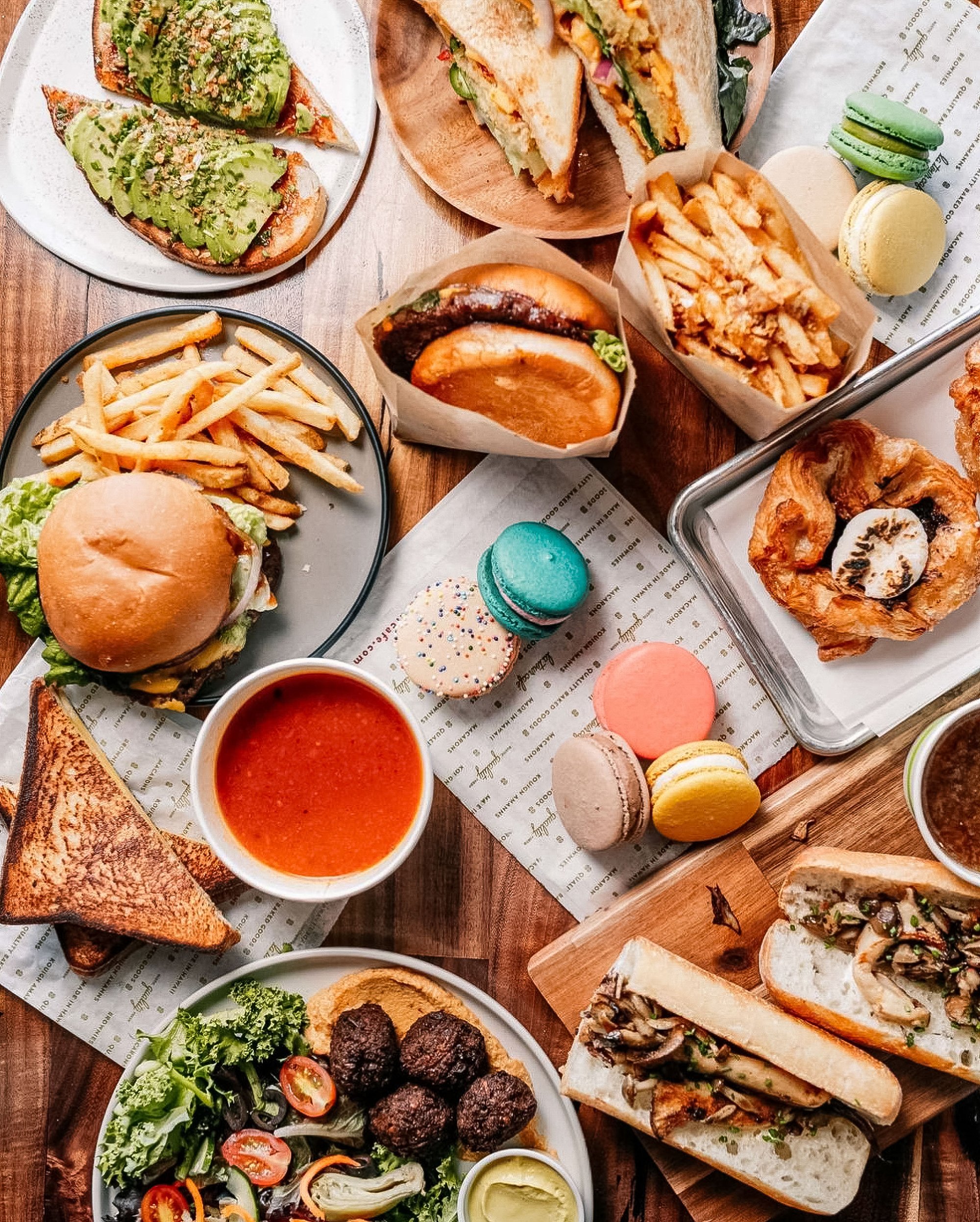
Planted by La Tour
* * *
My meat-loving friend consents to a plant-based lunch after I send her a photo of Planted’s smash burgers. With its artichoke katsu sandwiches, Chick’n tenders, vegan macarons and kouign amanns, Planted draws a different demographic than Istanbul’s well-heeled patrons and Alo’s yoga and hipster crowd. Planted’s demo, in fact, looks a lot like Brandon and Trung Lam—co-founders of La Tour Café and sons of the couple who launched Ba-Le and La Tour Bakehouse. Planted is La Tour Café’s first offshoot.
“Plant-based is definitely trending. We wanted to bring that to Hawai‘i in an approachable, fun way—unique and creative things where you’d want to try them anyway because it sounds good,” says Brandon Lam, 40, the CEO. Many items come with fresh breads from La Tour; Lam estimates that less than 10% of other ingredients are processed, like Impossible meats. “Everything else we try to do from scratch or an approach that is unique to us, whatever produces good results in the most natural way possible.”
It seems to be working. After a slower trial period in ‘Āina Haina, Planted opened across from Rinka Restaurant to steady traffic in April. Amid a trickle of weekday afternoon customers, my friend stares at the menu, torn between the teri burger and the fried green tomato sandwich. Like many omnivores, she likes the idea of healthier eating but doesn’t want to feel deprived. She devours her teri burger before I can get a taste. It dripped with juicy sauces and the lettuce, tomato and onion were very fresh, she offers by way of apology. Her only complaint is that the patty was thin. It’s a smash burger, I remind her. Then they should make it a double, she says.
My lunch is the Aloha Tamago Tartine, an open-face egg salad sandwich inspired by Japan’s cult-status kombini egg sandos, plus a cup of mushroomy Umami Broth and La Tour’s famous fries. The fries come with a ranch aioli that tastes like real mayonnaise. The egg salad, made with Aloha Tofu, kabocha and a Himalayan salt with an eerily yolk-like flavor, tastes like egg salad. My friend eats half of my food while texting her cousins. She’s inviting them to a plant-based lunch.
987 Queen St., (808) 200-5985, @planted.hi
